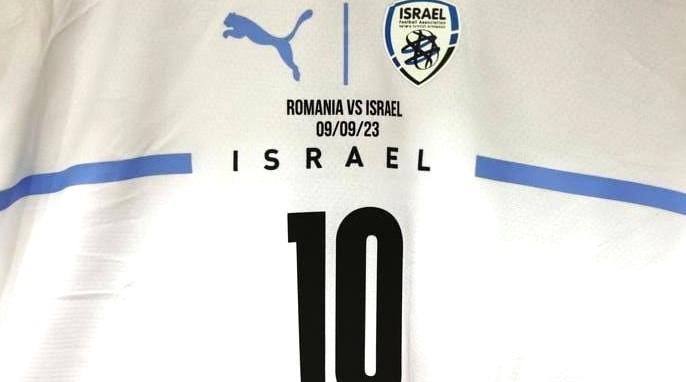In a surprising turn of events, German athletic clothing company Puma, has officially declared that it will cancel its sponsorship of Israel’s national football team in 2024. A spokesperson from Puma confirmed the news. They have also stated that it is entirely unrelated to the ongoing Israel-Gaza conflict.
Puma is a well renowned German multinational athletic clothing company founded in 1948. It is renowned for sponsoring various sports teams across the globe. Some of the best players in many sports have also become famous thanks to the company. These Puma players are also very popular all over the world. Getting declined from the sponsorship from a brand with this much of influence is giving the Israel’s national football team a hard time.
“While two newly signed national teams – including a new statement team – will be announced later this year and in 2024, the contracts of some federations such as Serbia and Israel will expire in 2024,” said the spokesperson in an emailed statement to the Reuters news agency.
The spokesperson of the German athletic clothing company said on Tuesday that the action had been planned since last year and has nothing to do with proposals for boycotts by consumers against Israel amid the Gaza conflict.

Due to Puma’s brand relationship with the Israel Football Association (IFA), boycott demands have been continuously present; however, during Israel’s two-month inhumane killing in Gaza, which led to the deaths of thousands of Palestinians, these demands have become stronger.
According to an internal memo accessed by the Financial Times, Puma’s restructuring involves the non-renewal of contracts with a number of associations, including Serbia and Israel, which are set to expire in 2024. The company, in line with its “fewer-bigger-better strategy,” has hinted that it will soon make announcements regarding agreements with multiple new national teams. The memo also made clear Puma’s resolve to keep an extensive pool of national teams by regularly evaluating existing partnerships and looking into new ones.
Reuters via email that the contracts the business had with different organizations, including Israel and Serbia, were set to expire in 2024 and would not be renewed.
Per the memo, Puma will keep an eye on “any additional future possibilities as well as all other existing partnerships to ensure & maintain an outstanding group of national teams,” according to the newspaper.
In order to supply players with apparel, Puma and the IFA first agreed upon a contract in 2018. Since then, activists have called for a boycott of the company, saying that the IFA has teams that are housed in illegal West Bank areas that are only for Jews and are occupied by Israel.
The Boycott, Divest, and Sanctions (BDS) movements, led by Palestinians, have been at the forefront of the campaign against multinational companies that support Israel. Puma, in particular, has been a prime target for activists advocating for justice in the region. The company’s decision to not renew its sponsorship deal with Israel’s national football team is seen by many as a response to these growing calls for corporate responsibility in the face of geopolitical conflicts.
The boycott movement against Israel has swelled since Hamas’s October 7 massacre, when 3,000 terrorists burst across the border from Gaza into Israel in a shock assault, killing some 1,200 people, mostly civilians slaughtered in their homes and at a music festival amid brutal atrocities, and taking at least 240 hostages.
According to a Financial Times report, the Israel Football Association rejected the BDS claim, calling it “a pathetic attempt” to manipulate public opinion.
Hamas has made it clear that it wants to destroy the Jewish state, so Israel quickly went to war with it. The goal of the IDF assault in Gaza is to get rid of the terrorist group and free the prisoners.
Over 18,000 people are alleged to have died as a result of Israel’s bombings and ground assault since October 7 according to the Gaza Strip’s health ministry, which is managed by Hamas. These numbers can’t be checked by anyone else, but Israel thinks they include almost 7,000 Hamas fighters and bystanders killed by Palestinian rockets that went off by accident. It is thought that more than 1,000 more terrorists died in Israel after the attack on October 7.
People in the region and around the world are angry about the Israeli strikes and have turned their backs on names that are linked to Israel and its supporters, especially the US. It is not clear that such boycott calls have had a substantial effect on companies.
Along with this, calls have been made for Arab states to cut links with Israel, and every week in major cities, there have been pro-Palestinian and anti-Israel protests.
This development follows a pattern of multinational corporations facing backlash for their associations with Israel. Fashion retailer Zara took down an advertisement campaign from its official website this past week after it provoked criticism for seeming to replicate scenes of misery in Gaza and provoked calls for boycotting the company by activists who support Palestine.









